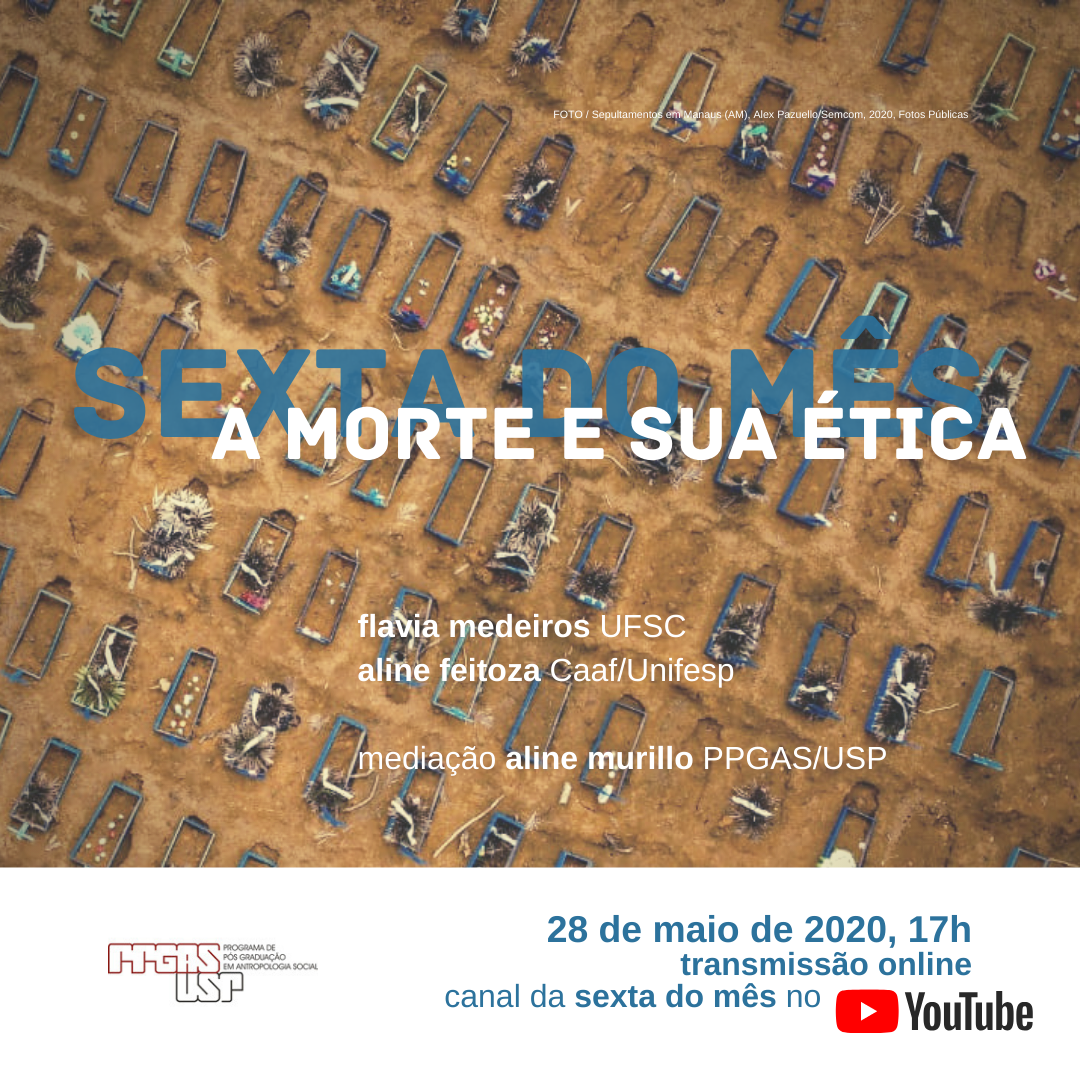com Flavia Medeiros (UFSC) e Aline Feitoza de Oliveira (Caaf-Unifesp)
mediação: Aline Murillo (PPGAS-USP)
Quinta-feira, 28 de maio de 2020, 17h
No canal da sexta do mês no youtube - bit.ly/2XuCu25
with Flavia Medeiros (UFSC) and Aline Feitoza de Oliveira (Caaf-Unifesp)
mediation: Aline Murillo (PPGAS-USP)
Thursday, May 28, 2020, 5 pm
On the Friday of the month channel on youtube - bit.ly/2XuCu25
Death continues to pursue the humanities, as a certain future - expected, feared, or postponed -, also disturbing the social sciences and anthropology. In addition to its reflective aspect, which offers us questions about the meaning of existence, through death ethical, political, religious and socioeconomic problems are outlined, associated with health, public security, health policy, geopolitics and biosafety.
Like any art, the routing of death, of the dead and their remnants, whether at the Medical-Legal Institute of Rio de Janeiro, among the Yanomami Indians, or at the Working Group on the Clandestine Ditch of the Perus Cemetery, is always supported by certain ethical principles, specialized procedures, specific rites and meets certain collective values and objectives - to guarantee the transition between life and death, to reaffirm social collectivities and to ensure the continuity of the presence and, at times, to clarify the history.
The new coronavirus now appears as a total enemy: it threatens the integrity of every human body, impacts entire national economies, alters each person's self-consciousness, endangers the continuity of life and societies that are known. For Cameroonian historian Achille Mbembe, the Covid-19 virus and pandemic enable us to renew our perception of putrescibility and to live "in the neighborhood of death itself", so that our exact social isolation is a policy of containment: it is, in the limit, our own notion of humanity that is at stake, again.
Around the world, for a long time, coexistence with clandestine ditches with missing politicians, conflicts and civil wars, burials without consent, massive exterminations - and, in the current covid-19 pandemic, health determinations that prevent mourning and political choices about who should live and who should die - cover the death of terror, and explain the ethical issues of dying and the policies of the living and the ways of producing death (s).
In this second edition of the Friday of the Month "In times of pandemic", we ask: What can experiences with the dead of Covid-19 reveal about the policies of the living, in their understanding of the body, death, life, mourning and memory? What is new and what is repeated in Covid-19, in the relationship between the living and their dead? And in general, who are the dead? What is there to say about our bodies? How do the political representatives of the dead act to defend their dignity?


